Ana Diab, Beth Howe + Kristy Waller Create Meaningful Access to ECU Print Collection with ‘Dream Fields’
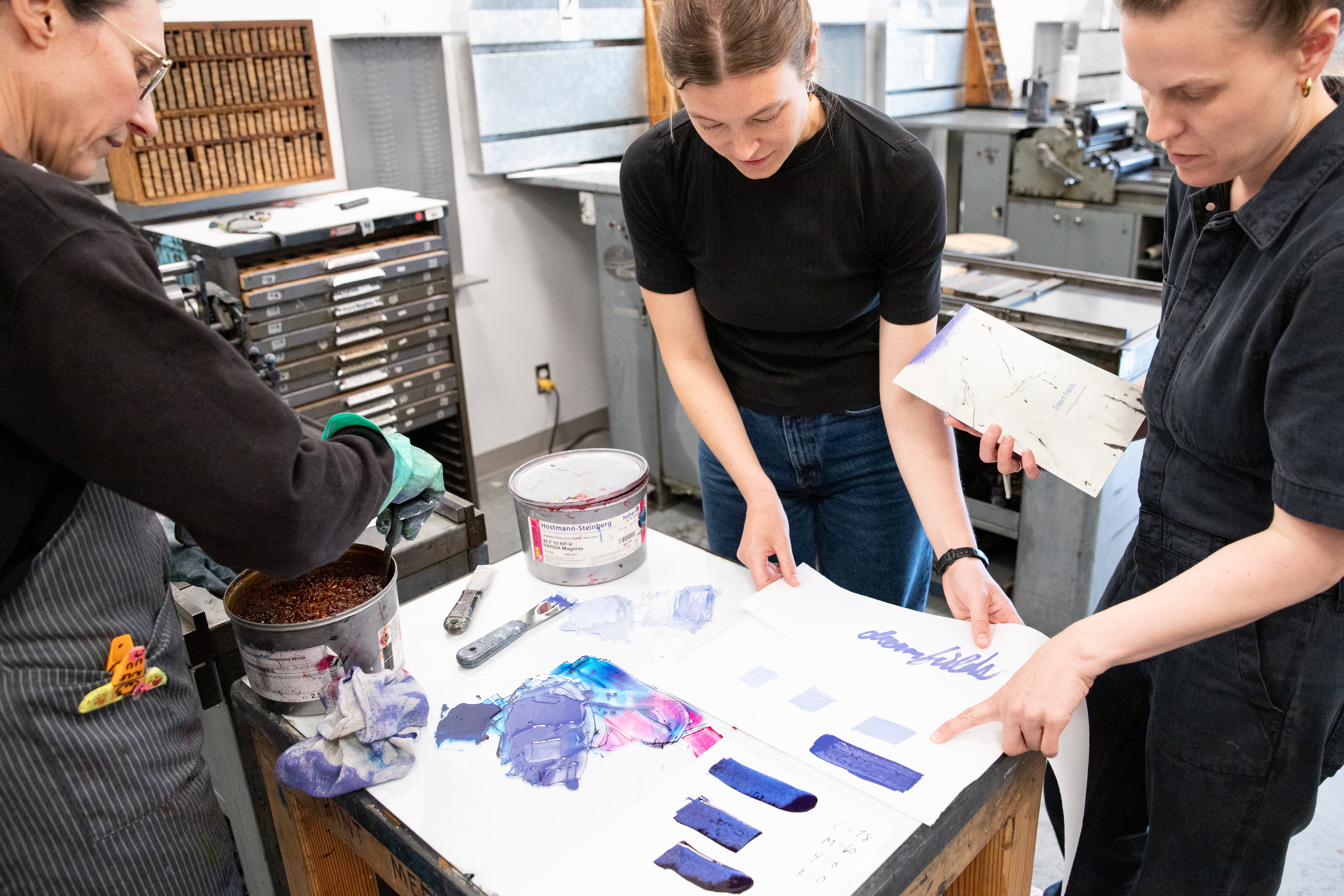
(From L) Beth Howe, Ana Diab and Kristy Waller work on the final printing stages of the Dream Fields publication in the Print Media lab at ECU. (Photo by Perrin Grauer)
Posted on | Updated
The SSHRC-funded project brings collaborative descriptive techniques to bear on ECU's Wosk Print Collection.
A recent project from Emily Carr University of Art + Design (ECU) faculty members Ana Diab, Beth Howe and Kristy Waller creates more meaningful access to a significant but under-used artwork collection in ECU’s Library Archives.
Funded by the Social Sciences and Humanities Research Council of Canada (SSHRC), the Dream Fields project applies collaborative descriptive techniques to ECU’s Wosk Print Collection. In doing so, it reactivates works by artists including Cézanne, Rembrandt, Riopelle, Picasso, Warhol and Goya, making them more easily discoverable and foregrounding their historical and formal links.
“The Wosk Collection is a teaching collection, but we found it wasn’t easy to use because it wasn’t catalogued very well and people didn’t know where it was,” says Beth Howe, an artist and printmaker who teaches courses in print media, artist’s books and artistic research at ECU.
“So, our project — as printmakers, archivists and librarians — was to pull the prints out, start talking about them, figure out what language we would use to catalogue them, and determine how we could invite the public in to use them.”
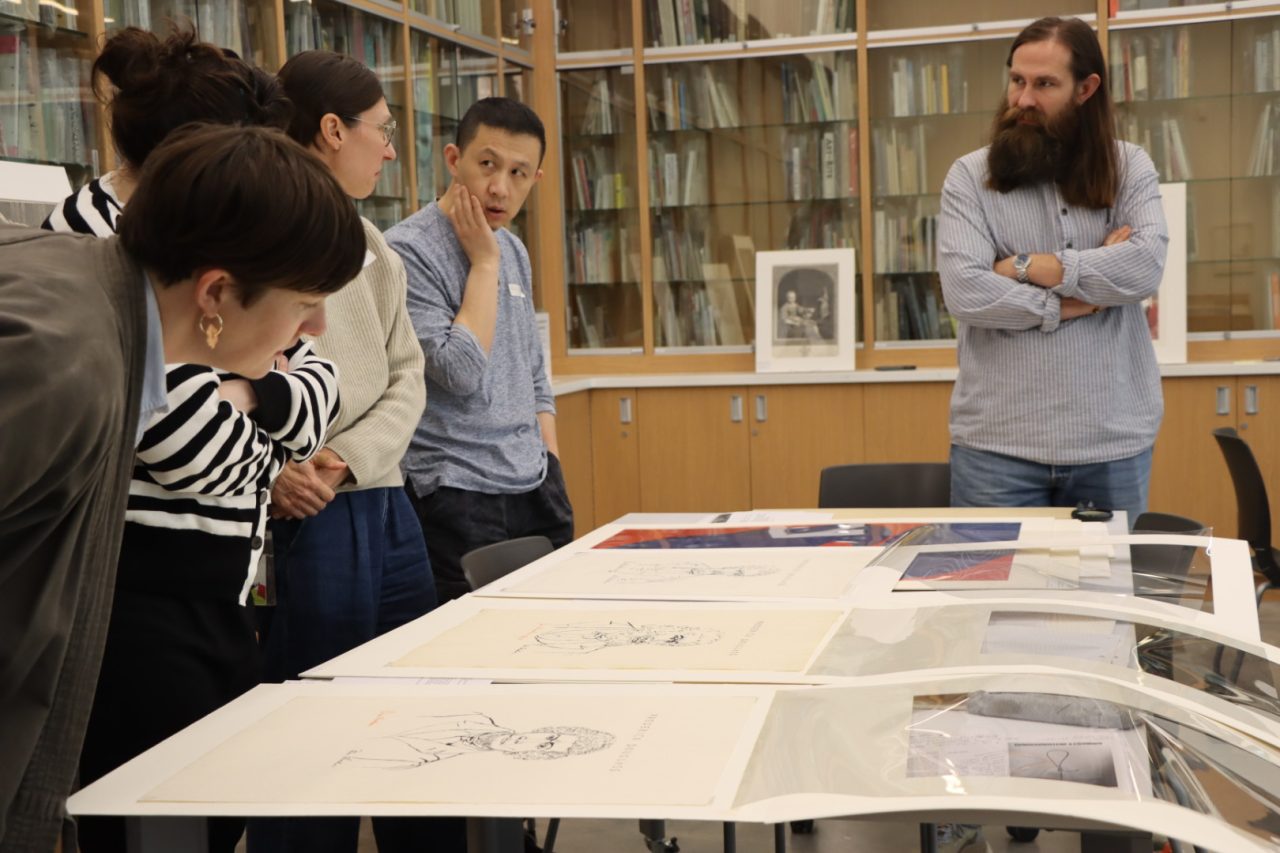
Artists, archivists, curators and art historians gather at ECU to collaborate on descriptions for works in the Wosk Collection. (Photo courtesy Dream Fields)
In 2024, Ana, Kristy and Beth gathered artists, archivists, curators and art historians from the Lower Mainland to explore the Wosk Collection. Each invitee offered feedback on how the needs of their specific discipline might be reflected in archival descriptions and records.
“This is a new information studies process where people do collaborative descriptive work,” says Kristy Waller, ECU’s archivist. “The question is, what information do we need to manage the collection? What do artists, printmakers or researchers want reflected in these descriptions? It was about coming together to learn what all of us do in our own worlds and then converging that into a record that describes materials in ways people actually search.”
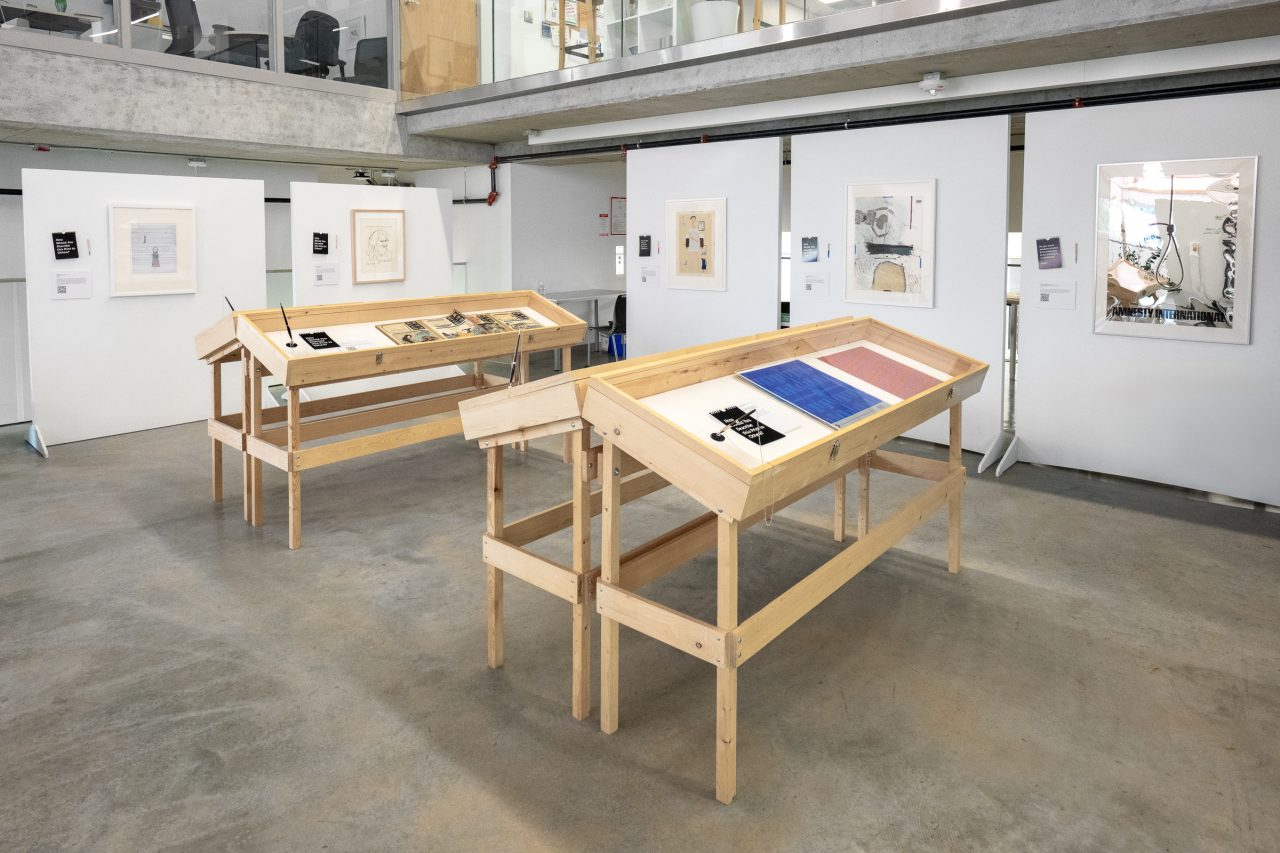
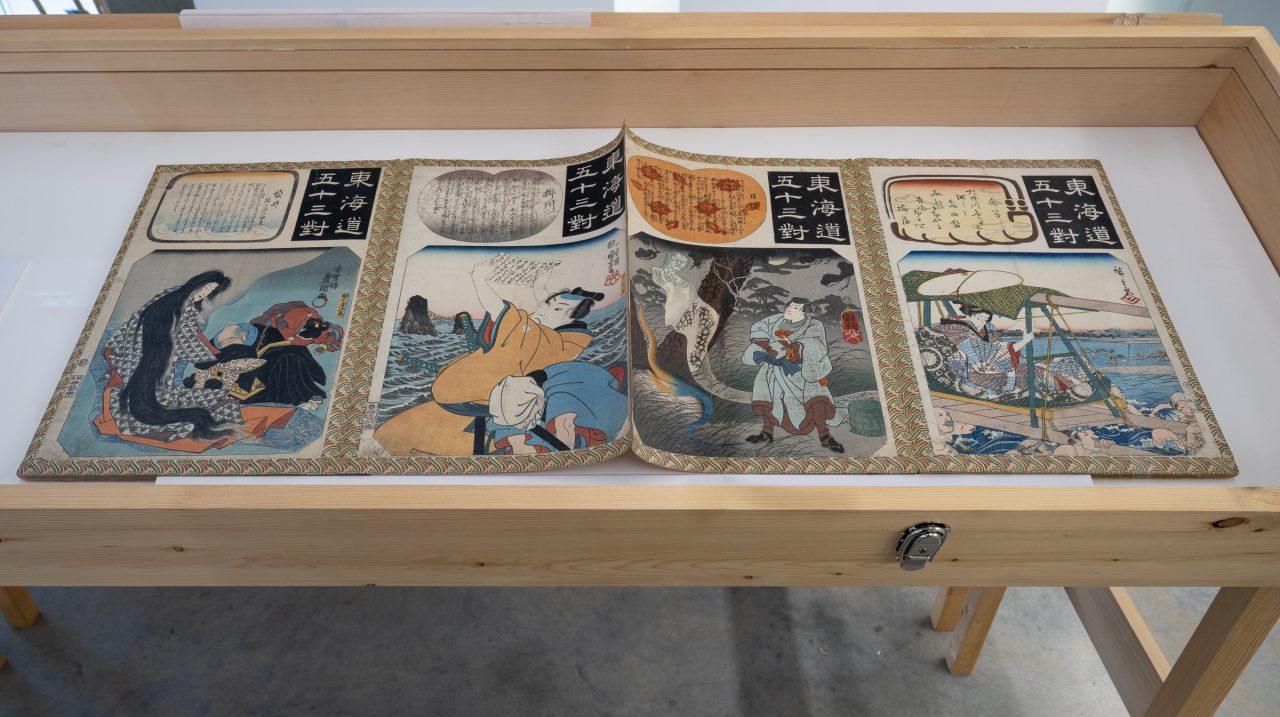
Works in the Wosk Collection on view in Dream Fields at the ECU Library + Archives. (Photos by Michael Love)
Using works chosen by the group and using language generated during the event, Ana, Kristy and Beth then mounted an exhibition in the ECU Library. The show doubled as a way to solicit input from the audience on how they might describe the works. These collaborative descriptions are known as “creative access descriptions.”
“Creative access descriptions allow for subjectivity and capture the emotional aspects of an artistic work or how it impacts the viewer to a degree,” says Ana, ECU’s collections, reference and instruction librarian. “Creating them adds more access points in the catalogue because they include things like colours and visual descriptions that have never been captured before.”
“We’re pushing against traditional archival or cataloging best practices where you’re meant to be neutral, which freezes an object in time in a particular way,” Kristy adds. “In this project, we’re embracing the subjectivity of looking.”
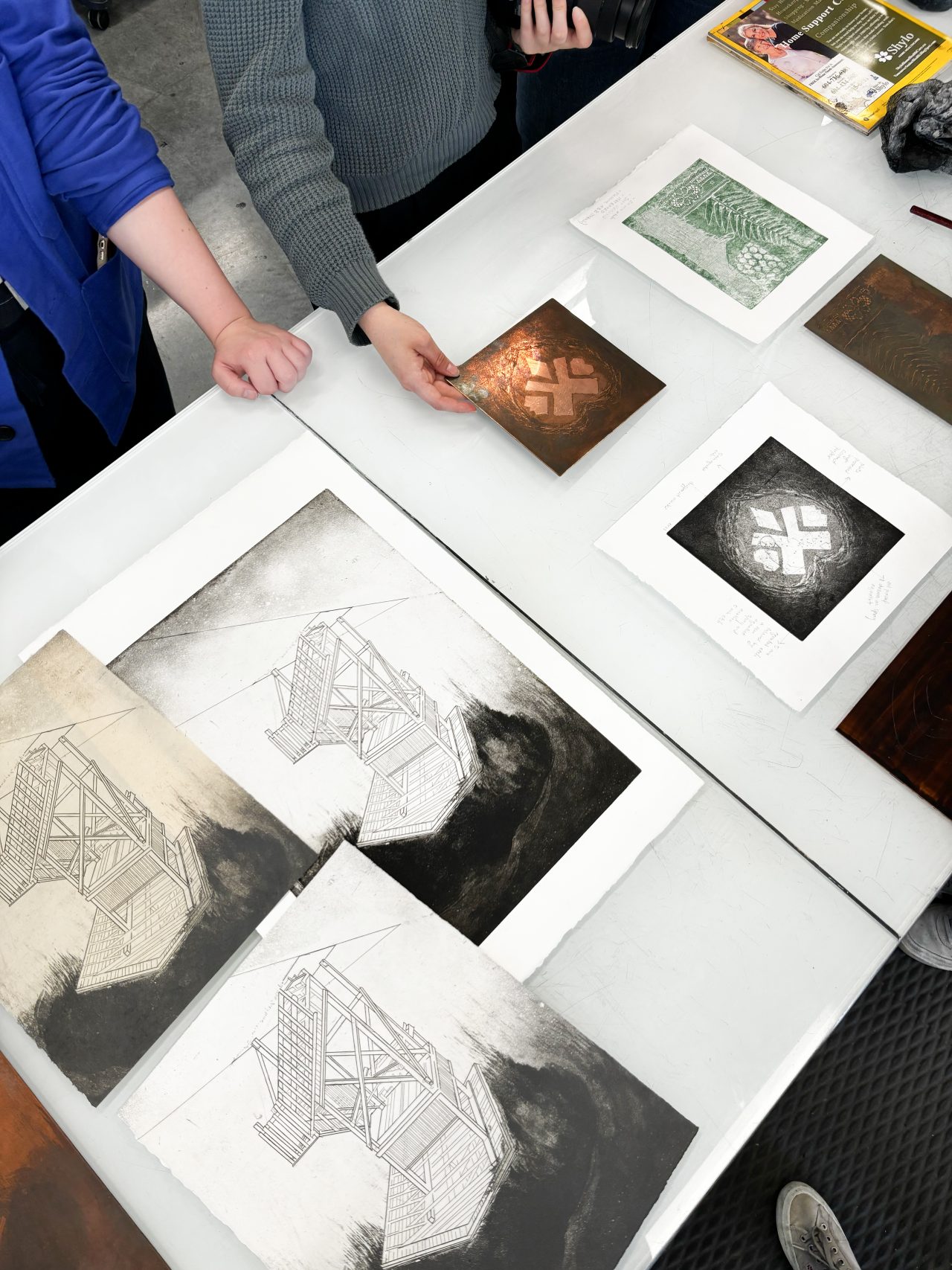
Dream Fields participants receive a demonstration and print techniques and get an up-close look at print matrices and other materials in the Print Media lab at ECU. (Photo courtesy Dream Fields)
The group also heard from speakers who work with “reparative description,” which addresses collections containing sensitive materials.
“The print collection includes some sensitive cultural content, and we’ve always grappled with how to present these kinds of materials to students in a respectful way, acknowledging the complicated histories and practices they link to,” Ana says. “We gained a lot of insight into how to manage those conversations.”
Dream Fields also added digitized images of the collection to ECU’s Archives database, along with updated copyright information to increase access and use. This process is related to Beth’s online resource, What Kind of Print is That, a tool for identifying the techniques used to make prints in the Wosk Collection.
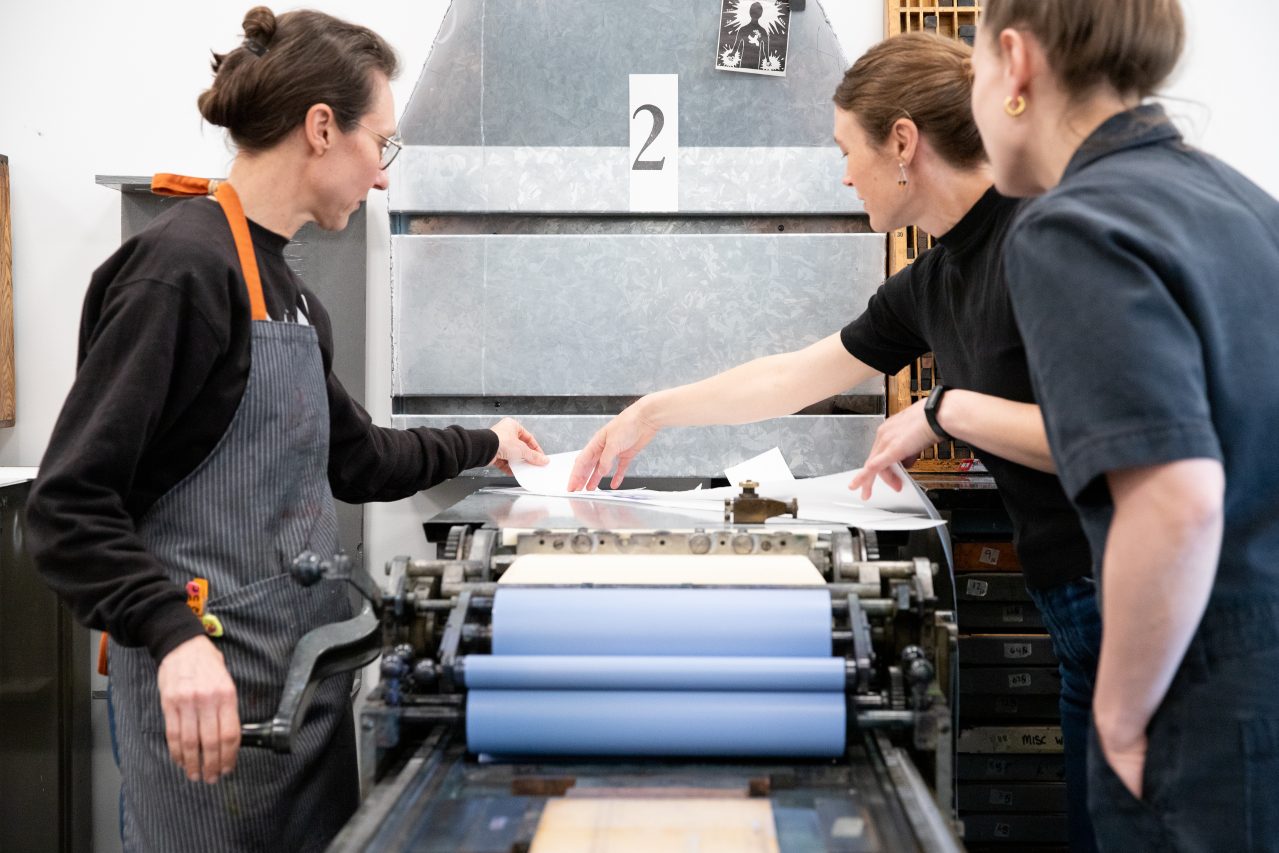
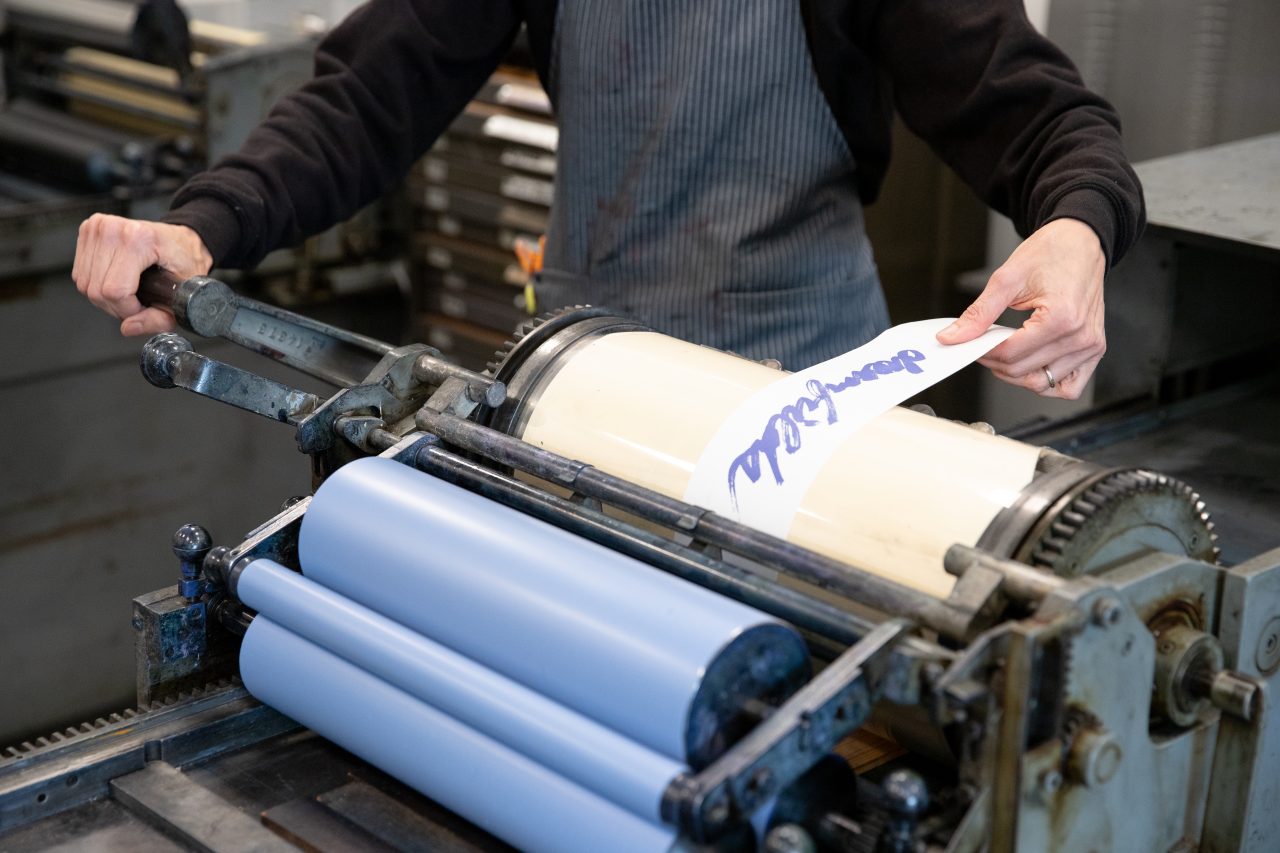
Beth Howe, Ana Diab and Kristy Waller print the bookwrap for the Dream Fields publication in the Print Media lab at ECU. (Photos by Perrin Grauer)
The knowledge generated by Dream Fields was later shared and enriched by presentations at the 2024 Southern Graphics Council International conference in Puerto Rico and the 2024 Association of Canadian Archivists conference.
And in 2025, Ana, Beth and Kristy completed a publication, also titled Dream Fields, summarizing their years of work. The book includes examples of several printing techniques, with a wrap hand-printed by the trio on a letterpress in the Print Media lab at ECU. The publication was later gifted to participants and the student research assistants who supported the project, with a copy also entering the ECU Library artists’ books collection for future reference.
“As a teacher, I hope all of this will help students find the resources they need for their research,” Beth says. “And it seems like students are starting to use them a little bit more already, which is what this is all about.”